What is the Difference Between a Fitness Coach and a Personal Trainer?
When attaining your fitness goals, you may face the dilemma of choosing between hiring a fitness coach or a personal trainer.
While both professionals are experts in the field of fitness, they offer different services and approaches.
This article will explore the contrasts between a fitness coach and a personal trainer, allowing you to make an educated choice that suits your specific needs and goals.
Defining Fitness Coaching and Personal Training
What is Fitness Coaching?
A fitness coach takes a holistic approach to health and wellness.
They provide workout plans and advice on nutrition, stress management, and lifestyle changes.
Fitness coaches help clients set both short and long-term goals, and they track progress to ensure these goals are being met.
They are fully dedicated to assisting clients in embracing a healthy lifestyle and accomplishing their fitness objectives.
The Essence of Personal Training
On the other hand, personal trainers focus on creating and guiding clients through individualized workout programs.
They are experts in exercise techniques and form, and their primary role is to ensure clients perform exercises correctly and safely.
Personal trainers provide constant guidance and support during workouts, helping clients achieve specific fitness goals such as weight loss or muscle gain.
Educational Background and Certification
Required Qualifications for Fitness Coaches
To become a fitness coach, one needs to obtain a degree in exercise science and nutrition, along with specialized courses in health science.
They must also create a business plan and stay organized with customer relationship management (CRM) systems.
Certifications for Personal Trainers
Becoming a personal trainer requires completing a certification process at an institution focusing on sports medicine, earning CPR and AED certificates.
Some institutions that provide certifications for personal trainers include The American College of Sports Medicine, The National Academy of Sports Medicine, The American Council on Exercise, and The National Strength and Conditioning Association.
Scope of Expertise
Fitness coaching integrates various training methods such as strength, cardio, and flexibility exercises.
Coaches create customized workout plans that cater to the client’s overall well-being.
They also emphasize mindset and behaviour change, helping clients develop healthy habits beyond the gym.
Personal trainers tailor programs to specific goals, such as weight loss or muscle gain.
They utilize specialized equipment and techniques to help clients achieve their fitness objectives.
Personal trainers are experts in exercise techniques and form, ensuring clients perform exercises correctly and safely.
Goal Setting and Assessment
Fitness coaches place great importance on goal identification and alignment.
They conduct thorough assessments to understand the client’s lifestyle, fitness level, and health history.
This holistic approach allows them to create an effective action plan that aligns with the client’s overall life goals.
Personal trainers set measurable and specific goals based on the client’s fitness objectives.
They assess physical capabilities and limitations to design a workout program that is both safe and effective.
Regular performance tracking and physical improvements keep clients on track toward their fitness goals.
Training Programs and Modalities
Fitness coaches integrate various training methods such as strength, cardio, and flexibility exercises.
They create customized workout plans that cater to the overall well-being of the client.
They also emphasize mindset and behaviour change, helping clients develop healthy habits beyond the gym.
Personal trainers tailor programs to specific goals, such as weight loss or muscle gain.
They utilize specialized equipment and techniques to help clients achieve their fitness objectives.
Personal trainers are experts in exercise techniques and form, ensuring clients perform exercises correctly and safely.
Client Engagement and Motivation
Fitness coaches establish a strong rapport and trust with their clients.
They employ motivational techniques to encourage sustained progress and help clients stay committed to their fitness journey.
Coaches also provide tools and strategies to help clients overcome obstacles and maintain their fitness routines.
Personal trainers provide constant guidance and support during workouts.
They create a motivating environment to enhance performance and keep clients engaged.
Trainers often use advanced tools and models to track progress and adjust workout plans as needed.
Nutrition Guidance and Support
Fitness coaches incorporate nutrition as a crucial aspect of fitness.
They educate clients on balanced and sustainable eating habits, helping them understand how diet impacts their health and fitness goals.
Coaches often provide comprehensive nutrition plans that complement their workout routines.
Personal trainers offer essential nutritional advice and meal planning.
They focus on fueling workouts and recovery, helping clients understand the importance of nutrition in physical performance and progress.
However, their nutritional advice is often limited to diet related to exercise and recovery.
Client Accountability and Progress Tracking
Fitness coaches encourage self-accountability and self-awareness.
They monitor progress beyond physical changes, considering factors like dietary habits, sleep patterns, and mental well-being.
Coaches often use straightforward steps and solutions to help clients stay accountable.
Personal trainers regularly track performance and physical improvements.
They keep clients on track through measurable results, providing constant feedback and adjustments to the workout plan.
Trainers often use advanced tools and models to track progress and adjust workout plans as needed.
Relationship Dynamics
Fitness coaches often build long-term relationships and partnerships with their clients.
They emphasize overall lifestyle changes, helping clients maintain their fitness gains in the long run.
Coaches often become trusted advisors and friends who support clients throughout their fitness journey.
Personal training often involves short-term relationships focused on specific fitness goals.
Trainers concentrate on exercise-specific training and support, providing expert guidance during workout sessions.
The relationship between a trainer and a client is often centred around the gym and workout sessions.
Setting and Environment
Fitness coaching can occur in various locations, including the gym, outdoors, or at home.
Coaches adapt to individual preferences and needs, providing flexible training options.
This flexibility increases the accessibility of fitness coaching, making it a choice for many.
Personal training sessions are primarily gym-based.
Trainers utilize gym equipment and facilities to provide comprehensive workout sessions.
The gym environment allows trainers to offer various exercises and training techniques.
Cost and Pricing Models
Fitness coaching often involves varied pricing structures, including hourly rates and packages.
The cost reflects the comprehensive nature of coaching services extending beyond workout sessions.
Hiring a fitness coach can be seen as an investment in overall health and well-being.
Personal training usually involves standard pricing per session or package.
The cost focuses on specific workout sessions, making it a straightforward option for those looking to improve their fitness levels.
Personal training services are often considered cost-effective solutions for achieving specific fitness goals.
Clientele Diversity
Fitness coaches cater to individuals with different fitness levels and goals.
They support many lifestyle changes, from weight loss to strength training.
Coaches often work with clients looking to make significant changes in their health and lifestyle.
Personal trainers target clients seeking focused, results-oriented training.
They work with clients for specific objectives, such as weight loss, muscle gain, or improved athletic performance.
Trainers often work with clients who have clear and specific fitness goals.
Frequently Asked Question
Question: What is the difference between a fitness coach and a personal trainer?
Answer: Fitness coaches help clients achieve their fitness goals through general guidance and support, such as creating workout plans and teaching how to use equipment. Personal trainers are certified professionals with specialized knowledge who develop and implement personalized training programs tailored to clients’ specific goals. If you are looking for a personal trainer in North Vancouver, T-Squared Personal Training is a great option.
Conclusion: The Difference Between a Fitness Coach and a Personal Trainer
In conclusion, while fitness coaches and personal trainers aim to help individuals achieve their fitness goals, they do so differently.
A fitness coach offers a holistic approach, focusing on lifestyle changes and overall well-being.
On the other hand, a personal trainer provides specific, goal-oriented training focusing on physical exercise and performance.
Understanding these distinctions lets you decide on the ideal professional for your fitness journey.
Ready to take the next step in your fitness journey?
Whether you’re looking for a fitness coach or a personal trainer, Troy of Tsquared Personal Training is here to help.
Contact us today to schedule your first session and work towards your fitness goals.
Want to Know more about Personal Training? Dive deeper into Ultimate Guide to Personal Training in Vancouver and discover invaluable insights
